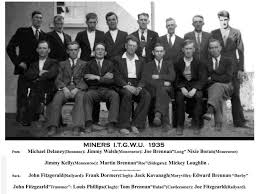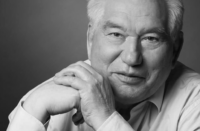Samantha Power was born in Ireland but was taken to America at a young age by her parents, a doctor and a dentist. She attended Yale University and subsequently became a war journalist. Later she was an adviser to Barack Obama, who appointed her US ambassador to the United Nations in 2013.
In effect, she is part of the American establishment and has the usual imperialist world outlook to be expected from someone of her class. She recently appeared in a history programme on RTE, “Who Do You Think You Are?” The programme traces the ancestors of the participants. Power was told by a parish priest that she was related to a family called Boran from the Castlecomer area of Co. Kilkenny. She had never heard the name before, but he told her that members of the family still lived in the area, which prompted her to explore the matter further.
She contacted a local historian, who produced a scrapbook that contained what looked like a copy of a poster of James Connolly next to a large hammer and sickle. It turned out that the historian was herself the daughter of Nixie (Nicholas) Boran, a cousin of Power.
Power seemed to be taken aback by this, and especially when she discovered that Nixie Boran was a communist and a founding member of the communist Revolutionary Workers’ Group. She managed to avoid using the word “communist” for the whole programme.
It is probably not realised by anyone passing through Castlecomer today that this was once a mining town. In fact mining had been carried on here since the seventeenth century. In 1637 Thomas Wentworth, lord deputy of Ireland, granted thousands of acres to Charles Wandesforde, a farmer from Yorkshire.
Castlecomer is the centre of the Leinster coalfield, and the lands were very valuable both for the coal and for the oak woodlands. Originally seams were leased to master miners; later the Wandesforde family became directly involved in the operation.
By the twentieth century the conditions for miners were gruesome. You had to crawl into the mine and work lying on your side, thereby scraping the skin on your shoulder and hip. You had to inhale coal dust, leading to pneumoconiosis. There were no toilet or washing facilities; and there was the use of child labour.
The Wandesfordes were lords and masters, setting the terms and conditions of employment. The miners paid for the gelignite, fuses, detonators, and candles. Rent, and a payment to the Church, were also deducted, leaving a take-home pay of about half nominal earnings.
Nixie Boran was born in the area in 1903 and, like other miners’ children, was sent to work in the mines as a child. By 1930 he had become interested in communism, and, along with Paddy O’Carroll, Jimmy Walshe, and Tom Walshe, he formed the Revolutionary Workers’ Group.
In August 1930 the miners were invited to send a delegate to the Red International of Labour Unions in Moscow. Boran was selected, but the government refused him a visa. However, he managed to get smuggled into the Soviet Union, where he stayed for several months, visiting collective farms and mining areas. He also met revolutionaries and Irish students at the Lenin School in Moscow.
On return to Ireland he was arrested and was questioned about his trip to the Soviet Union but gave no information. Local miners surrounded the Garda barracks so that they were forced to release him. On his release he told the miners what he had seen in the Soviet Union.
He now set about establishing a miners’ union. Bob Stewart of the Communist Party of Great Britain went to Kilkenny and helped the miners in establishing it, and by the end of 1930 they had succeeded in setting up the Irish Mine and Quarry Workers’ Union. They also set up the Revolutionary Workers’ Group and organised the sale and distribution of a paper, the Workers’ Voice. The union fought for improved conditions and were resolute against attacks from local priests, employers, and gardaí.
Boran described the IM&QWU as a militant union with the long-term aim of the destruction of capitalism. He said a union without a revolutionary policy was deceiving workers; policies of reformism would only lead to compromise and a general worsening of workers’ conditions.
The union was involved in many strikes from the 1930s up to the closure of the mines; it also led a successful challenge to the property rights of the Wandesforde family, and even resisted the attacks on communism from the priests.
Nixie Boran died in 1971 but, along with the other miners, is still remembered.






